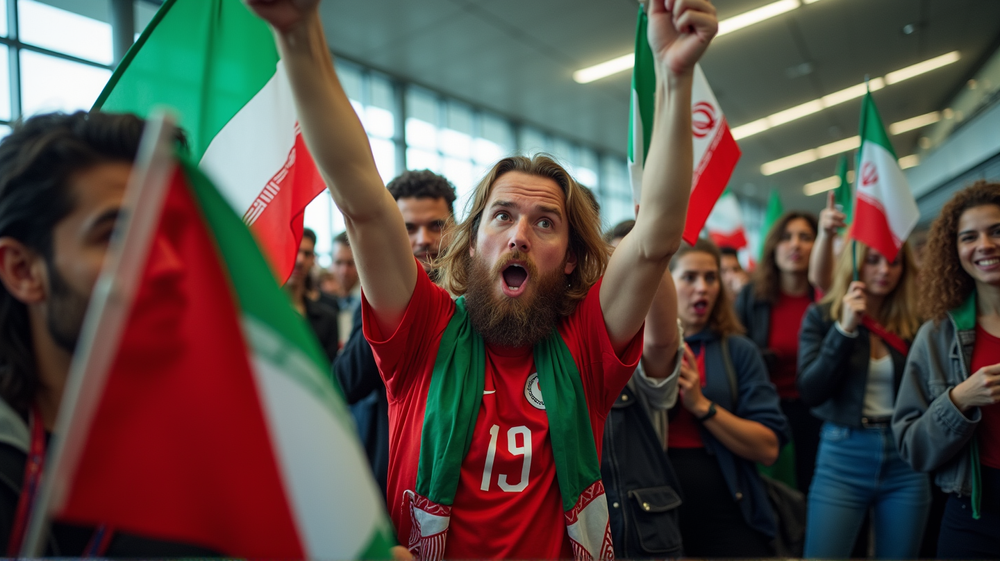The excitement surrounding Iran’s qualification for the 2026 World Cup is shadowed by discontent as travel restrictions challenge fans eager to attend the event. Iran finds itself navigating through the complexities of international diplomacy just to enjoy the world’s most popular sport.
Voices from Tehran
As Ali Rezaei from Tehran’s Borna News Agency poignantly states, the travel bans are not just offensive; they undermine the universality of the World Cup, an event meant to unite people across borders. The ban affects not only fans, but also potentially the media, limiting their freedom to celebrate and share remarkable global stories.
Political Tensions and Athletic Expression
Behnam Jafarzadeh from Varzesh3 highlights a broader issue—how politics can ruin the spirited nature of sports. The sentiment echoes across many Iranian hearts, as the move brings memories of past restrictions and discrimination to the forefront, sparking debates about political influence on global sporting events. According to The Guardian, excluding a team or its fans over international tensions sets a dangerous precedent.
Challenging FIFA’s Stance
While Siavash Pakdaman warns against boycotting, Fifa’s role as a guardian of the game’s integrity comes under scrutiny. Could there be a quiet push from within to protect the core values of sportsmanship? The potential reshuffling of games from the US to Canada or Mexico presents a logistical retreat rather than a viable solution, allowing diplomatic tensions to overshadow athletic unity.
Community Support and Internal Dilemma
Jafarzadeh also voices concerns about divided loyalties within the Iranian diaspora, many grappling between national pride and opposition to the current regime. It’s a delicate balance, as the national team might find itself playing to hostile crowds unaware of the personal sacrifices and pressures the players endure.
Hope for Change
Yet, there is a glimmer of hope in the time remaining before the World Cup kicks off. Could international relations change significantly, easing bans and allowing Iranian fans to join in the celebration on U.S. soil? Isa Azimi remains cautiously optimistic, pointing out that if Fifa values its autonomy, it must act decisively to separate political conflicts from the beautiful game.
The coming months hold the answer. Whether Fifa will stand firm against political pressures to ensure inclusivity for all, especially for the silenced voices from Iran, remains an unfolding story watched by millions.












